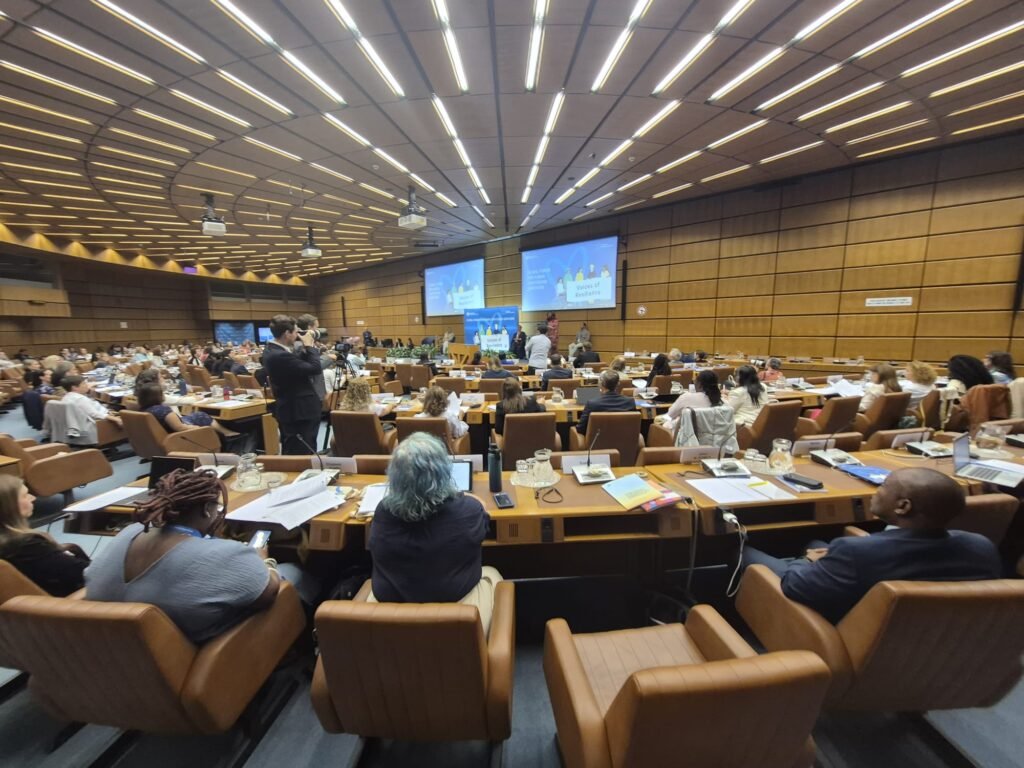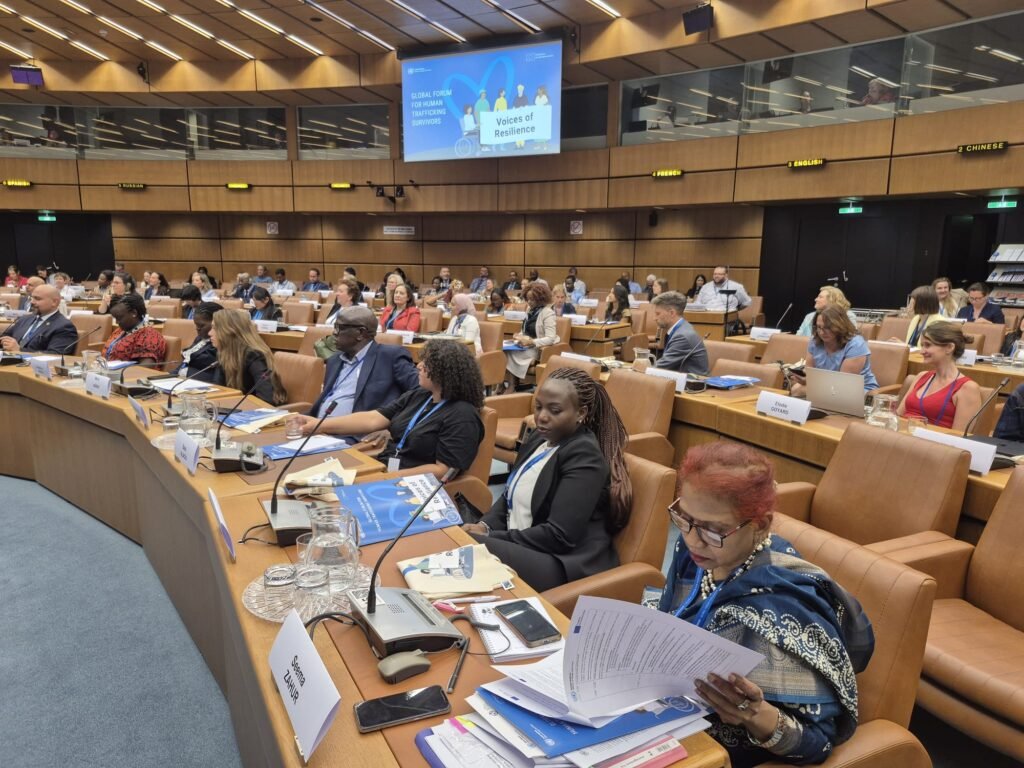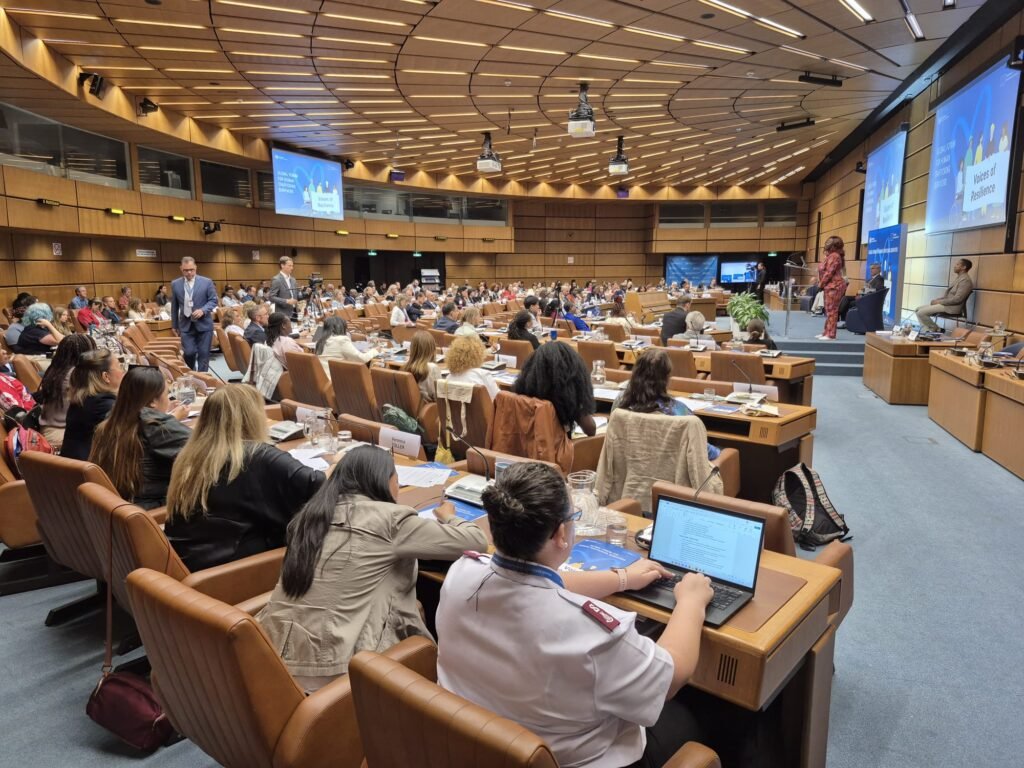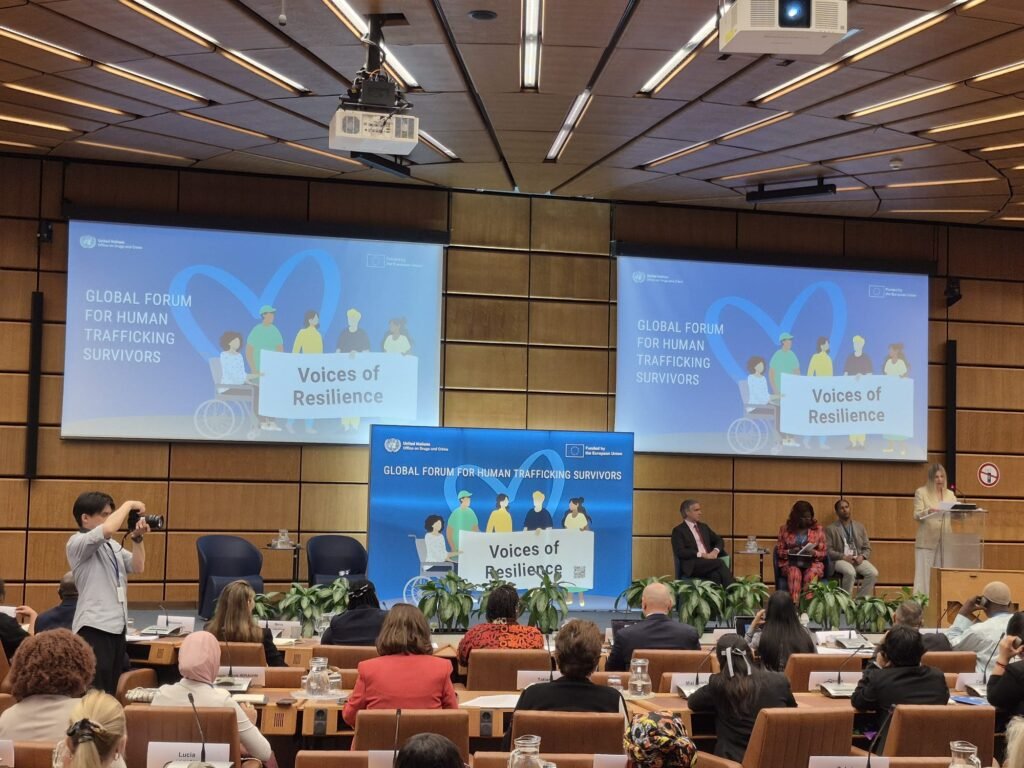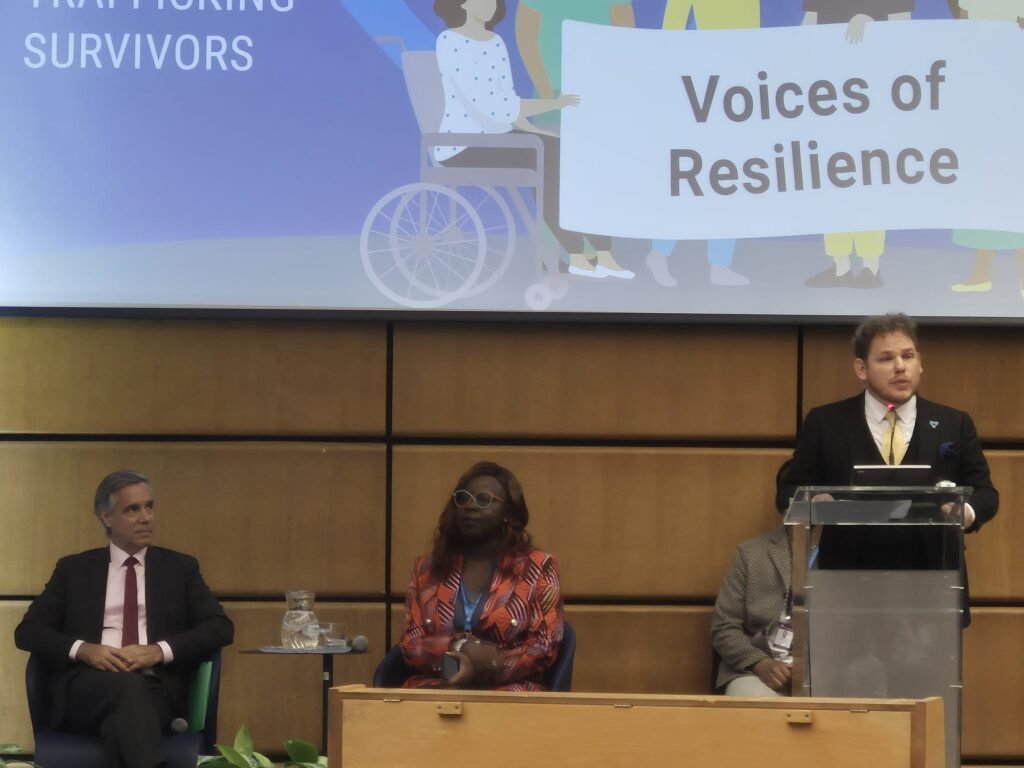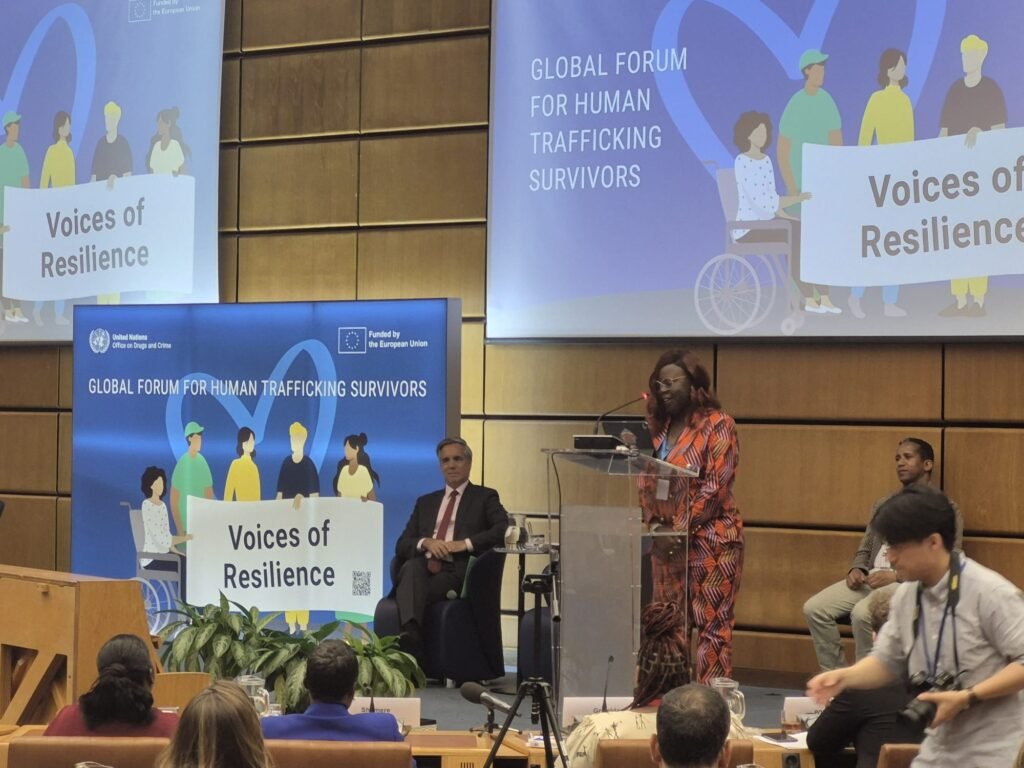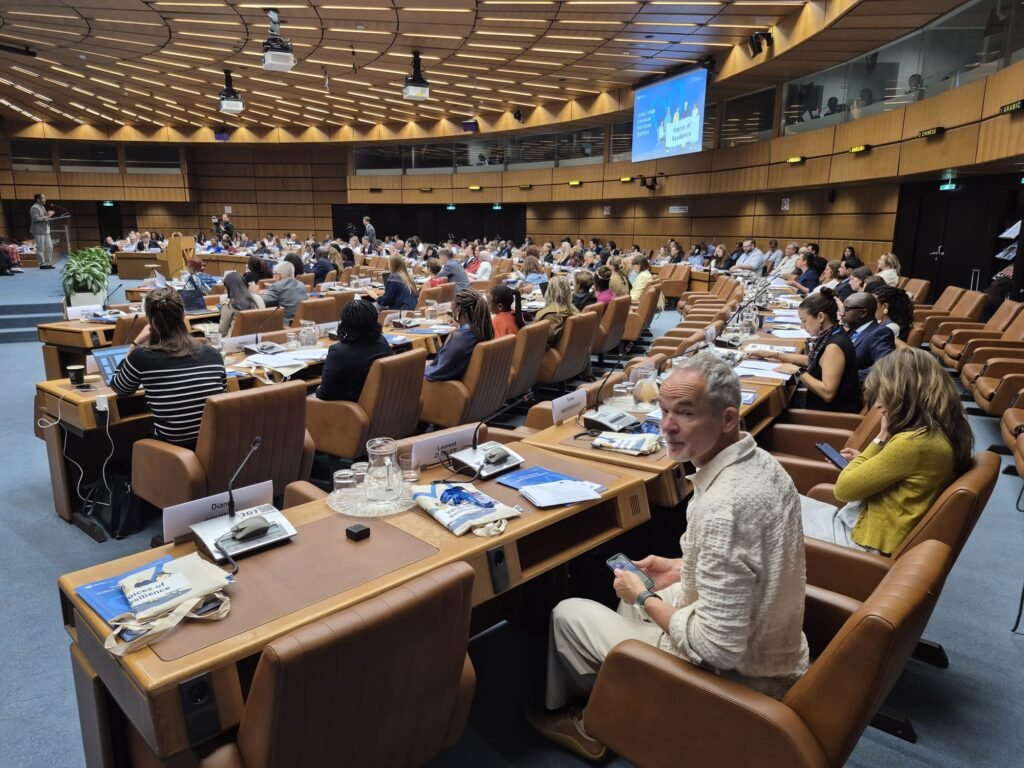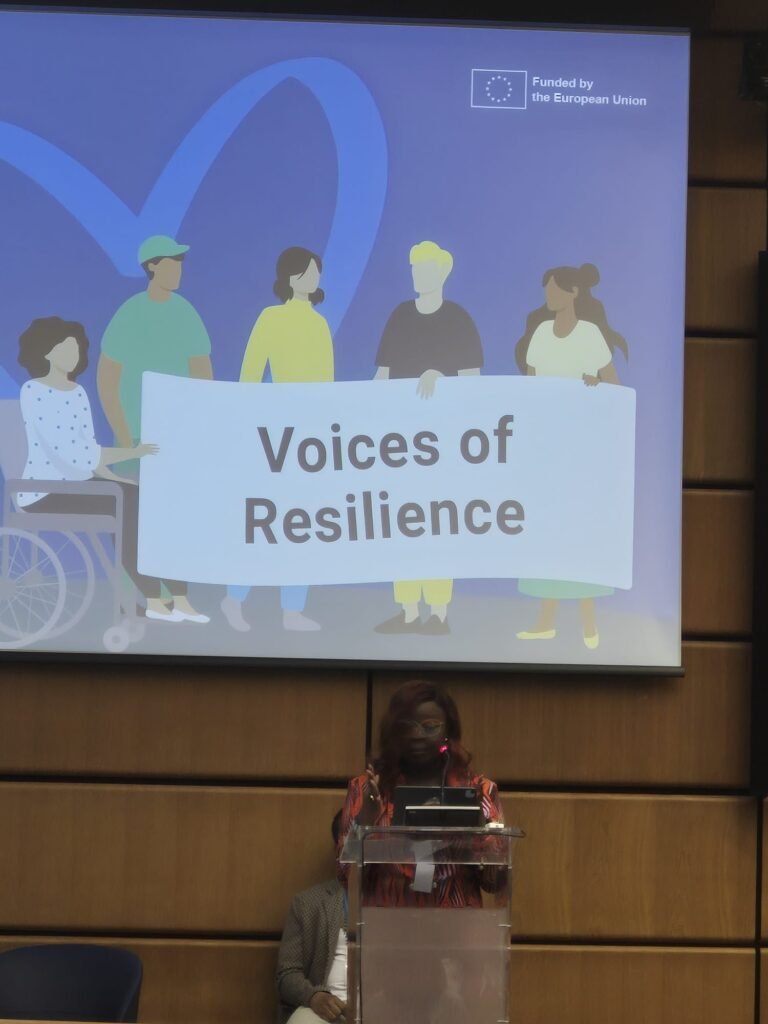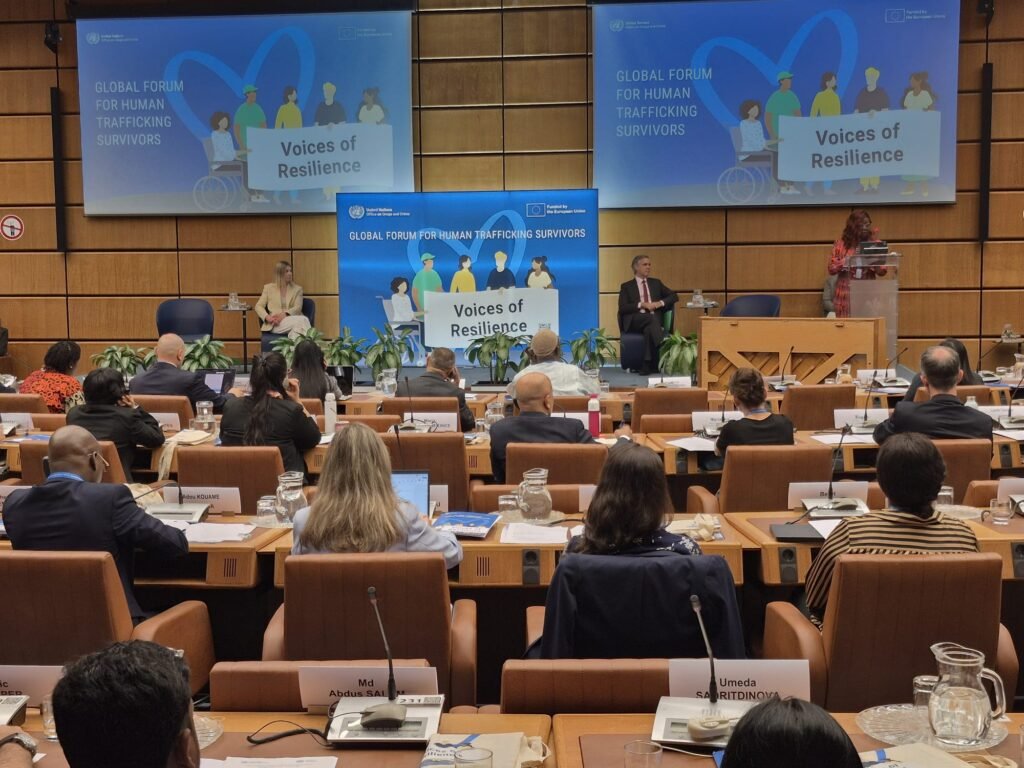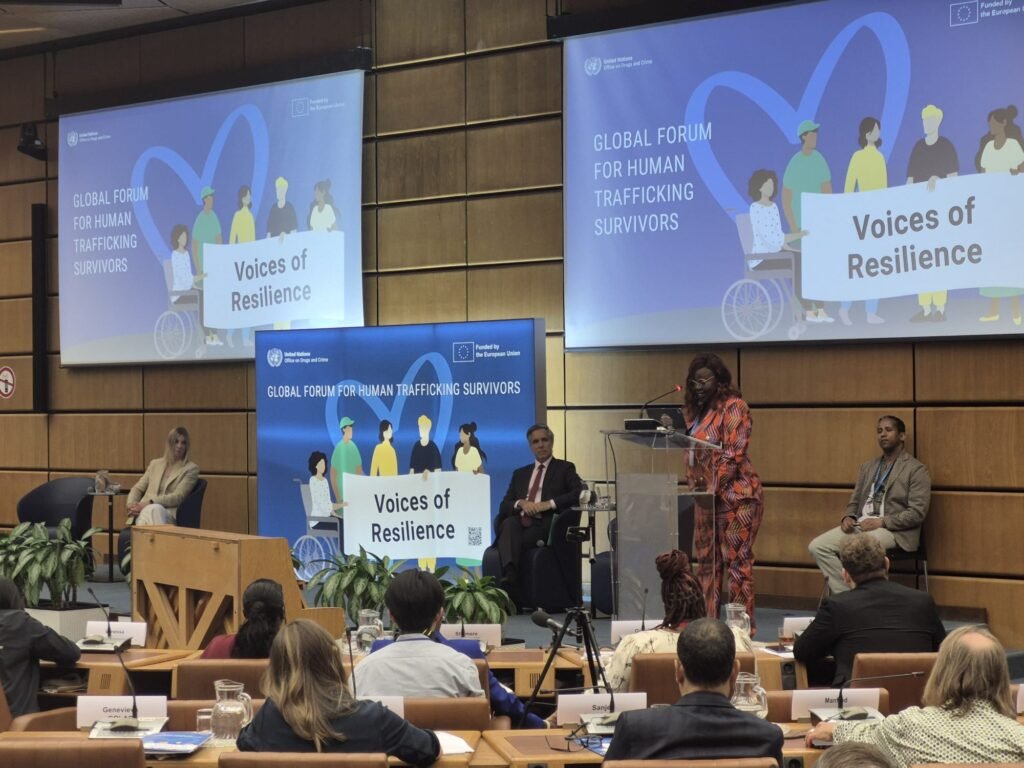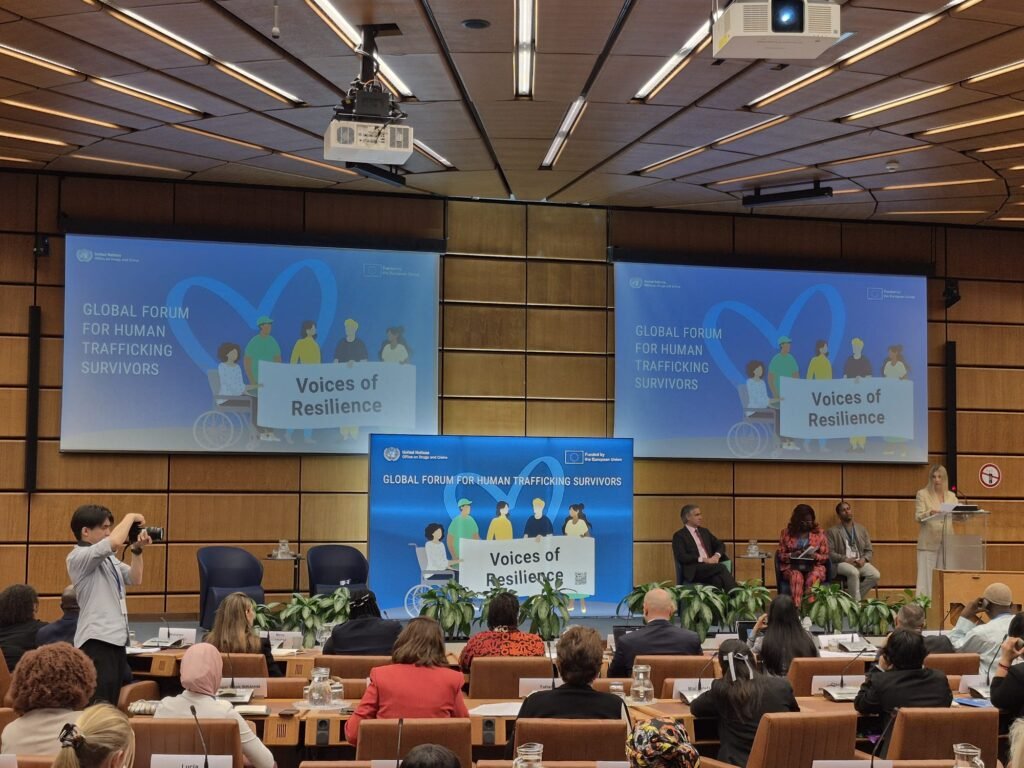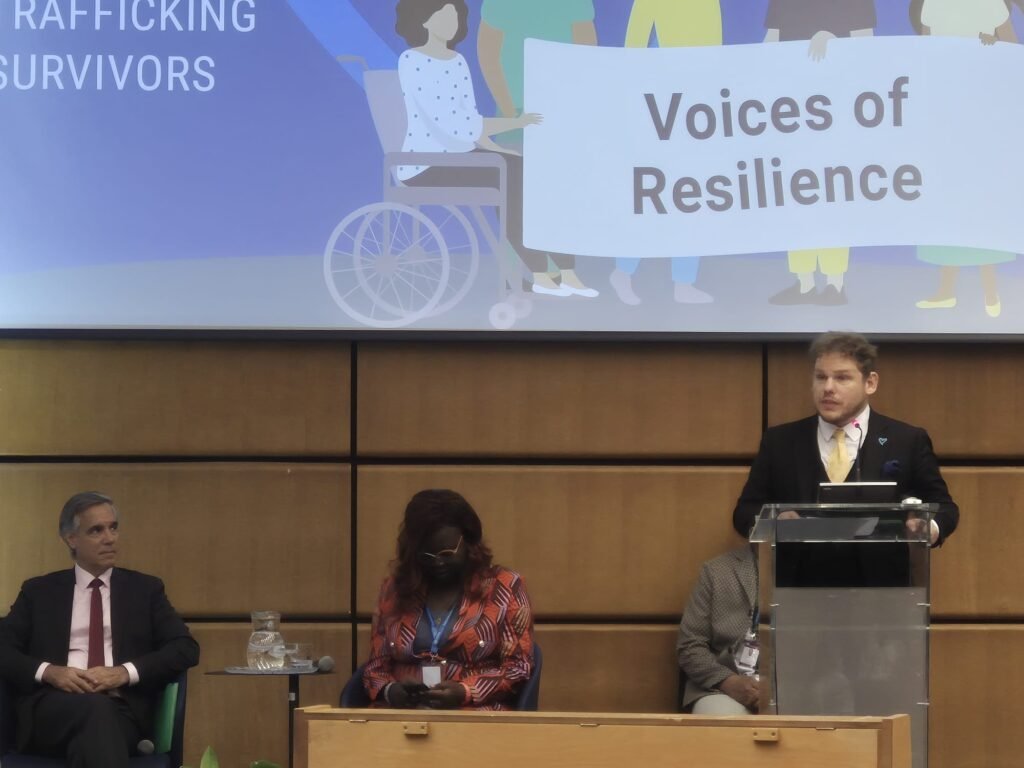Introduction to the Forum
The inaugural Global Forum on Human Trafficking, themed ‘Voices of Resilience’, emerges as a pivotal event in addressing one of the most pressing human rights challenges of our time. Organized by the United Nations Office on Drugs and Crime (UNODC), this forum is scheduled to take place from November 1 to November 3, 2023, in Vienna, Austria. It aims to amplify the voices of those affected by human trafficking and to spotlight the resilience and resourcefulness of survivors as advocates for change.
Human trafficking is a multifaceted issue that affects millions worldwide, spanning across various demographics and regions. This forum serves as an essential platform to bring together stakeholders from various sectors, including government representatives, non-profit organizations, law enforcement agencies, and, importantly, survivors themselves. By fostering dialogue and collaboration, the event seeks to enhance understanding of the complexities surrounding human trafficking while promoting survivor-led advocacy and initiatives.
The significance of this forum is further underscored by the support from the European Union, which plays a crucial role in sponsoring and facilitating discussions aimed at ending human trafficking. The EU’s involvement emphasizes the commitment of regional authorities to combat this crime, reinforce victim support systems, and formulate policies that protect the rights of individuals affected by trafficking. The event not only seeks to outline best practices for prevention and intervention but also aims to empower survivors by providing them a platform to share their narratives and engage in meaningful discussions on post-trauma recovery.
In summary, the ‘Voices of Resilience’ forum represents a landmark effort to unite global efforts against human trafficking, ensuring that the voices of survivors are at the forefront of policy development and advocacy. Through such initiatives, the international community can strengthen its resolve to combat trafficking and promote the dignity and rights of all individuals.
Celebrating Survivor Leaders
The inaugural Global Forum on Human Trafficking will bring together over 30 survivor leaders who have emerged as powerful advocates for change in the fight against human trafficking. Their unique stories and profound experiences highlight the multifaceted impacts of trafficking and emphasize the urgent need for survivor-driven strategies in policy-making and support systems. Among these notable figures are Malaika Oringo, Sophie Otiende, Laurent Ziegler, and Frey A Worku, each contributing invaluable insights shaped by their individual journeys.
Malaika Oringo’s story is a testament to resilience. Having experienced the harsh realities of trafficking, she has dedicated her life to supporting others who have faced similar challenges. Through her advocacy work, Oringo has raised awareness about the systemic issues that perpetuate trafficking and has actively engaged with local communities to foster dialogue and education. Her compassionate approach emphasizes the importance of community involvement in recovery and prevention efforts.
Sophie Otiende is another powerful voice in the survivor community. With her experience in advocacy, Otiende has been instrumental in raising awareness about the exploitation of women and girls. Her leadership is characterized by her commitment to creating platforms for survivors to share their stories, thereby humanizing the statistics and bringing attention to the real-life consequences of trafficking. Otiende’s efforts stress the necessity of integrating survivor perspectives into anti-trafficking initiatives.
Laurent Ziegler and Frey A Worku also bring critical insights to the forum. Ziegler’s journey from victim to advocate has provided him with a unique lens through which to view the complexities of human trafficking. Meanwhile, Worku’s experiences in various socio-economic contexts allow him to address broader systemic issues, including poverty and inequality, that fuel trafficking. Their participation serves as a reminder that the power of change lies within the survivors themselves.
By elevating these survivor leaders, the forum seeks to underscore the importance of their voices in shaping effective, survivor-centered strategies against human trafficking. Their contributions not only inspire others but also help create a more informed and compassionate approach to combatting this global issue.
Focus on Survivor-Centered Approaches
The inaugural Global Forum on Human Trafficking has placed significant emphasis on survivor-centered approaches as an essential component of the fight against human trafficking. A survivor-centered approach is defined by a commitment to prioritize the voices, experiences, and needs of those who have been affected by trafficking. This methodology not only seeks to empower survivors but also ensures that their insights guide the development and implementation of effective strategies against human trafficking. By involving survivors in the conversations and interventions, the forum highlights a crucial aspect of advocacy that can lead to systemic change.
Utilizing survivor-centered methods ensures that the unique challenges and barriers faced by victims are acknowledged and addressed appropriately. Survivors possess invaluable knowledge regarding the complexities of trafficking, enabling service providers and policymakers to tailor solutions that resonate with the realities of those affected. This collaborative approach fosters an environment where survivors feel respected and validated, which is vital for their recovery and reintegration into society.
The role of service providers and civil society organizations is paramount in this context. These entities serve as bridges, facilitating connections between survivors and the resources they need, and advocating for their voices to be heard in broader discussions. By dedicating resources to support survivors, these organizations can effectively amplify their narratives while also fostering a culture of trust and support. Furthermore, encouraging feedback from survivors allows for continuous improvement in services and initiatives geared toward combating human trafficking.
Overall, the Global Forum recognizes that centering the experiences of survivors informs stronger, more effective responses to human trafficking. By prioritizing their input and involving various stakeholders, the forum is driving a transformative agenda that aspires not only to address immediate concerns but to advocate for enduring change within systems and communities.
Cultural Highlights and Significance
The inaugural Global Forum on Human Trafficking promises to be a profound convergence of social advocacy and cultural expression. A significant highlight of the forum will be the performance by the renowned Viennese tenor, Angelo Pollak, who is set to debut his original piece, ‘Resilience.’ This work, composed by the talented Lauren Bernofsky, embodies a theme that resonates deeply with the forum’s mission. The piece encapsulates the spirit of overcoming adversity, thereby reinforcing the message of empowerment that underlines the event.
Art, in its many forms, plays a pivotal role in social advocacy, offering a platform to amplify voices and narratives that might otherwise remain unheard. The introduction of ‘Resilience’ into the forum is a testament to the essential interplay between culture and social change. Music, particularly classical, has a unique ability to evoke emotions and provoke thought, making it an effective medium for discussing sensitive topics such as human trafficking. By weaving together beautiful melodies with profound themes of survival and empowerment, Pollak’s performance will contribute significantly to the forum’s overall objectives.
Angelo Pollak is not just an artist of remarkable talent; he is also a figure recognized within the classical music scene for his artistic achievements. His notable contributions and accolades have established him as a respected tenor, advocating for various causes through the power of his voice. His commitment to social issues and his artistic prowess come together at the forum, allowing attendees to experience how cultural productions can serve as catalysts for dialogue and reflection. In essence, the integration of art into social advocacy enriches the conversation surrounding human trafficking, highlighting the transformative potential of cultural expressions like Pollak’s ‘Resilience.’
